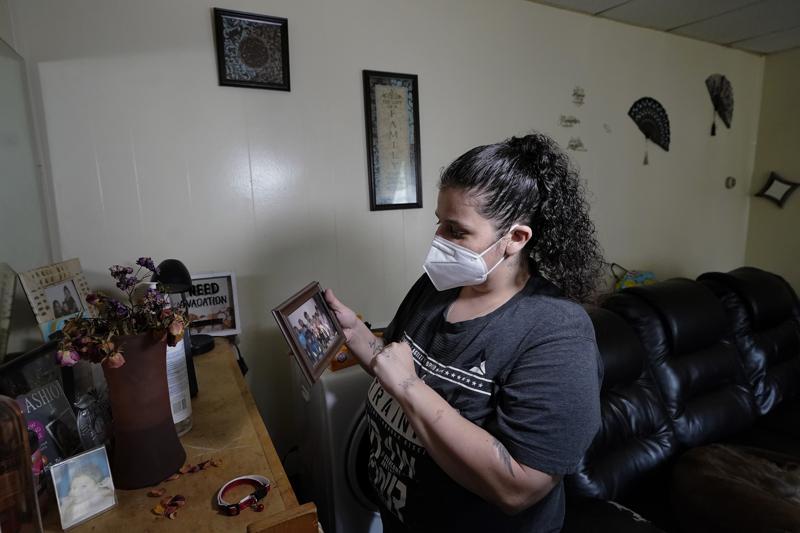WASHINGTON, Aug. 25 (Xinhua) -- The Biden administration's emergency rental aid to tenants and landlords struggling economically during the COVID-19 pandemic has been distributing at a low pace, as the Treasury Department's data released Wednesday show 90 percent of that money still remains in the pipeline.

Roxanne Schaefer holds a photograph in the living room of her apartment, in West Warwick, R.I., Tuesday, July 27, 2021. Schaefer, who is months behind on rent, is bracing for the end to a CDC federal moratorium Saturday, July 31, 2021, a move that could result in millions of people being evicted just as the highly contagious delta variant of the coronavirus is rapidly spreading. (Photo: AP)
As of July 31, only 4.7 billion dollars in that aid program was spent on rent, utilities and missed payments for vulnerable households who were behind on their rent, just 10 percent of the 46.6 billion dollars Congress has appropriated since December last year.
The data showed that 1.7 billion dollars had reached state and local governments in July, only a slight acceleration from June's distribution of 1.5 billion dollars.
While 70 state and local agencies had distributed more than half of their initial allotment of rental assistance by the end of July, "too many grantees have yet to demonstrate sufficient progress in getting assistance to struggling tenants and landlords," the Treasury said in a blogpost accompanying the release of the data.
The Treasury said one of the challenges faced by jurisdictions in getting assistance to renters and landlords is application processing delays. The Biden administration addressed the issue by announcing new guidelines Wednesday to streamline application processes and make it easier for needy people to get help, measures whose effectiveness in solving the persistent conundrum remains to be seen.
The Centers for Disease Control and Prevention in early August renewed a federal eviction moratorium effective through Oct. 3, in the Biden administration's bid to buy more time for the aid money to be distributed, after the previous moratorium lapsed at the end of July.
The new moratorium was immediately sued by landlord groups, but a federal judge in Washington, D.C., on Aug. 13 allowed the order to remain in place, citing her lack of authority to block it despite mounting controversies surrounding its legality.
The lawsuit then went to a federal appellate court in the nation's capital, where the three-judge panel declined to lift the moratorium to meet the request by the property managers and real-estate agents from the states of Alabama and Georgia, who last Friday filed an appeal and put the case to the Supreme Court.
As per the request of Chief Justice John Roberts, the Biden administration issued a response to the lawsuit Monday, urging the Supreme Court to leave the moratorium in place, saying it is a "lawful and urgently needed response to an unprecedented public emergency." The high court's decision is expected in the coming days.


